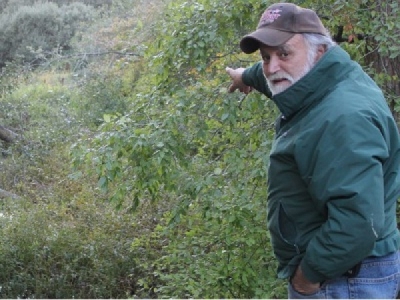
Posted on October 18, 2016
By William F. Galvin, The Cape and Chronicle
Barnstable County has placed an order for a second dredge to be used in keeping local harbor channels open for boaters. But the county is also beginning to discuss extending dredging activities into freshwater, including rivers and streams leading to headwaters.
“My main goal is to clean up estuary passages because they are not flushing out the way they should,” County Commissioner Leo Cakounes said this week of extending dredge practices to rivers and ponds. “In early days river flow would flush the whole system.”
Last week, Cape Cod Commission executive director Paul Niedzwiecki and county administrator Jack Yunits were before selectmen providing county updates and sharing concepts under consideration. Yunits said the county was looking to expand dredging opportunities to Cape towns.
Yunits noted the plans to expand saltwater dredging and discussed the concept raised by Cakounes, a Harwich resident, to look at freshwater dredging as a means of reducing nitrogen and phosphorus buildup, which has detrimental impacts on estuaries and ponds, respectively.
Cakounes said the county commission signed a contract with Ellicott Dredge, a Baltimore company, on Sept.21 to build a new dredge. The new dredge will cost $1,897,500 and will take nine months to build. It will be trucked to New Bedford in sections and put together there.
Cakounes said the funds for the new dredge will come out of the capital reserve account established in the dredge enterprise fund. He said a portion of the fees for the use of the Codfish, the existing county dredge which has been in operation for 15 to 20 years, have been placed in the reserve account.
There is a lot of demand for the Codfish from local communities, Cakounes said, and because of fisheries closure windows put in place by the state Division of Marine Fisheries to protect spawning of certain species, there is limited time to provide the service.
The Codfish is in good shape, Cakounes said, thanks to a strong maintenance program and regular replacement of mechanical parts. He cited the recent replacement of pumps and an upgrade for the long-distance pumping equipment.
But the new dredge will allow a much more responsive dredge schedule to better meet the needs of Cape communities. Cakounes said he does not anticipate they will be hiring a second dredge crew to operate the new dredge; instead they would look at adding a smaller relocation crew, since so much of the time is spent on getting the dredge and equipment from one project to the next. The thought is the second dredge would be relocated while the dredge crew is conducting one project and then they would go to the next site where the other dredge would be in place and ready to operate.
“We’re not looking to double the operation,” Cakounes said. “If the numbers do not work, the old dredge would be gone.”
One of the issues facing the county is locating a place to store the dredges. He said there are times of the year when the dredge remains for a time in a location where the last dredging took place.
Cakounes said the freshwater dredging is something he initially brought up about four years ago as a member of the Barnstable County Assembly of Delegates, adding there is money available in the dredge reserve fund. He said such a dredge system would be small enough to move along the road from inland pond to inland pond. He said a small dredge with a silt filter, ancillary equipment and a dump truck could provide this service.
The idea is to remove spoils and silt in ponds where phosphorus builds up to allow a better flow and prevent stagnation; he noted a situation a couple of years ago when the smell was unbearable for residents living near Swan Pond in Dennis. The dredge would also be used to clean blockages from rivers leading into headwaters which impede herring passage and fry returning to the ocean from the spawning grounds.
These steps would improve water quality conditions in keeping with the 208 Regional Wastewater Management Plan, Cakounes said. Selectman Peter Hughes the town is presently looking at how to address phosphorus issues in Hinckley’s Pond.
Flow through the Herring River used to power mills in the 1800s, and the river was an active part of cranberry growing and was kept open by those farmers for many years, said Cakounes. He said the town uses AmeriCorps of Cape Cod personnel to clean sections of the river and they do a good job, but they are using chainsaws, not working the river itself.
Plymouth County purchased an excavator with a 60-foot arm used for dredging ponds and rivers, he noted. The estuaries and ponds need improvements “big time,” he said.
“It’s the same in every river on the Cape,” Cakounes said.
He has not yet filed an ordinance seeking funding for this, saying it is very early in the planning stages and the wheels of government run slow. But he sees the value to such a program and is discussing it with department heads. It might take a couple of years to get something on the ground and working, Cakounes said.
Source: The Cape and Chronicle





